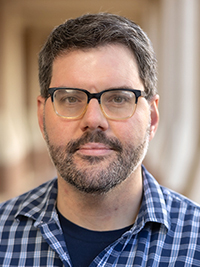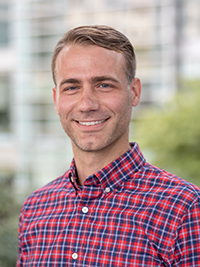 John P Morris IV, PhD
John P Morris IV, PhDAssistant Professor
Department of Pharmacology
University of North Carolina, Chapel Hill
Chapel Hill, NC
 Justin Milner, PhD
Justin Milner, PhDAssistant Professor
Department of Microbiology & Immunology
University of North Carolina, Chapel Hill
Chapel Hill, NC
Overview
Aim: Therapy
The genetic landscape of pancreatic ductal adenocarcinoma (PDAC) is dominated by co-occurring mutations in the proto-oncogene KRAS (>90%) and the tumor suppressor TP53 (>50%). Sequential acquisition of Kras mutations followed by p53 alterations mirrors stepwise PDAC development, with mutant Kras found in the earliest pre-malignant precursors and subsequent p53 mutations observed in malignant disease. This synergy in epithelial transformation corresponds with evolution of the pancreatic stroma, culminating in a highly immune suppressive tumor immune microenvironment (TIME) that is characteristic of PDAC. Thus, Kras and p53 mutation function in context to drive progression to lethal PDAC, making understanding the mechanisms underlying how each of these events contribute to malignant initiation and epithelial-immune modulation an essential goal—one made more critical by the recent emergence of inhibitors of mutant Kras and the recalcitrance of PDAC to immune checkpoint inhibitor therapy (ICI). Both Kras and p53 dependent activities play a role in epithelial to immune communication, but their contextual roles in modulating the TIME during PDAC development and how they impact immunotherapy efficacy have not been addressed. This proposal leverages novel preclinical animal models with state-of-the art technology to identify functional patterns of immune composition and activity developed by PDAC biologist Dr. John Morris and tumor immunologist Dr. Justin Milner to dissect mechanisms by which mutant Kras and p53 modulate pro-tumorigenic and anti-tumorigenic immune responses in PDAC. Findings from the proposed studies will unveil mechanisms that potentiate the PDAC TIME and will inform new strategies for manipulating epithelial-immune interactions to enhance immunotherapy efficacy and therapeutic management of PDAC.